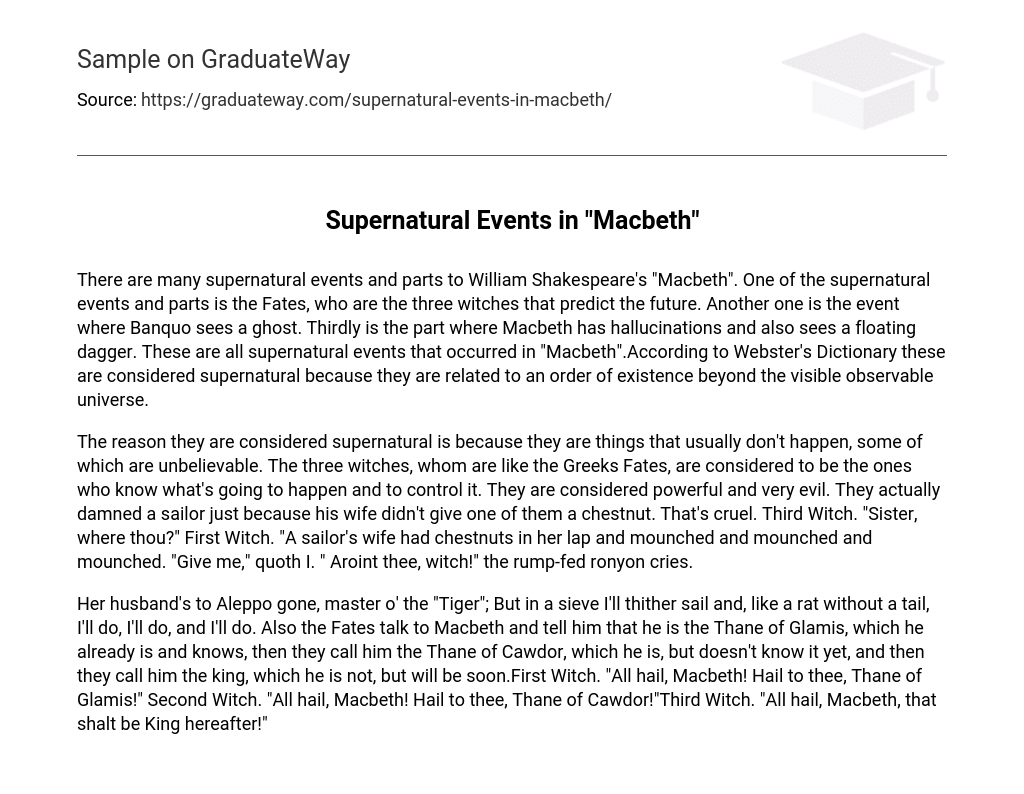Within William Shakespeare’s “Macbeth”, numerous supernatural events and elements are present. Firstly, there are the Fates, three witches who possess the ability to forecast the future. Secondly, there is the occurrence when Banquo encounters a ghost. Lastly, Macbeth experiences hallucinations and witnesses a floating dagger. All these occurrences constitute as supernatural events depicted in “Macbeth.” According to Webster’s Dictionary, these phenomena are deemed supernatural as they pertain to a realm of existence that extends beyond what can be perceived within the visible observable universe.
The supernatural beings in question are deemed as such due to their extraordinary nature and often incredible events they bring about. These beings, resembling the Greek Fates, are regarded as possessing knowledge of the future and the ability to manipulate it. They are both powerful and highly malevolent. Their cruelty is exemplified by their condemnation of a sailor solely because his wife failed to offer one of them a chestnut. The dialogue between them reveals their callousness – the Third Witch asks where her sister is, to which the First Witch responds by recounting an incident with a sailor’s wife and a chestnut, prompting the sailor’s wife to insult the witch.
Her husband’s to Aleppo gone, master o’ the “Tiger”; However, I will sail there in a sieve and, like a tailless rat, I will accomplish what needs to be done. Furthermore, the Fates speak to Macbeth, informing him that he is the Thane of Glamis, a title he already holds and is aware of. Then they declare him the Thane of Cawdor, a position he currently holds but is ignorant of. Lastly, they proclaim him as king, a role he currently does not possess but will assume in the near future.





